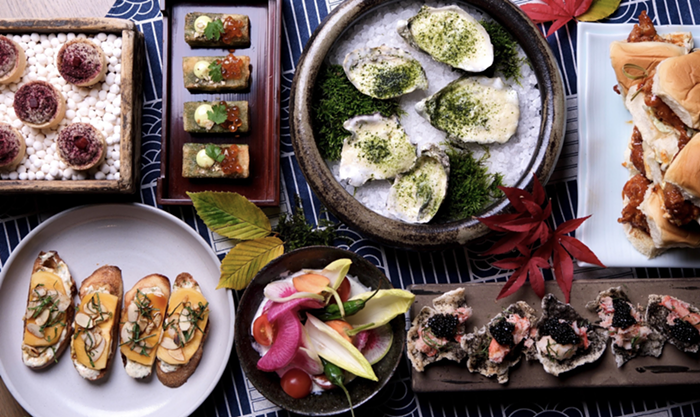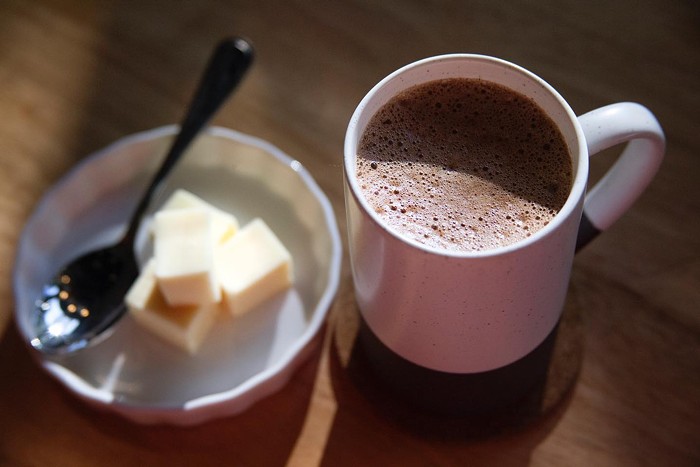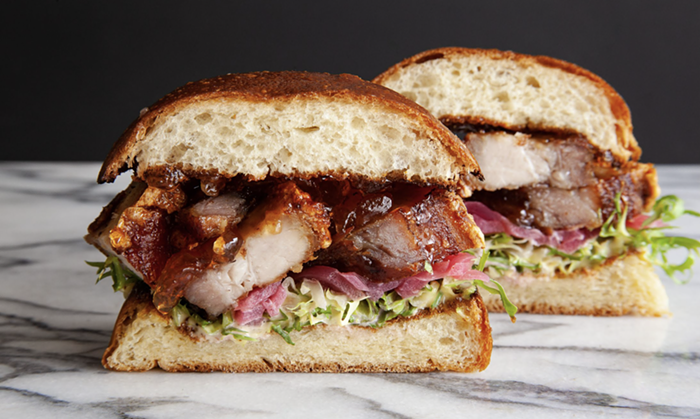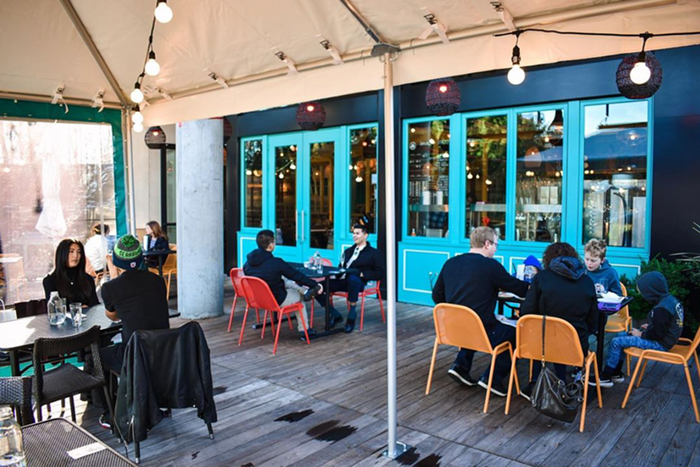Yihdego Gidey is the chef at Chef Bar & Restaurant. He is always working, back in the silvery open kitchen. He has been a chef, his daughter says, since back when they lived in Addis Ababa, even though he didn't have a restaurant then. He opened this place—virtually un-Googleable, casually referred to as Chef Bar—a year and a half ago. About five years before that, he and his family (wife and two daughters) came to Seattle. This daughter, the older one, who graduated from nearby Garfield High School in 2008, can be found waiting tables during the summer, when she's not at college in Spokane. When business is slow, she watches the Disney Channel on the TV over the bar or sits with her mother and father at a small table near the kitchen on the well-lit side of the restaurant. The other side—each half is approximately the size and shape of a country church—is for you, the recipient of their vast hospitality.
In this second side, the walls are painted the deep, solid colors of the red lentils and burned-orange peas that arrive on the plates, and the sconces are honey-colored (so the light is, too). At the bar in the back, the bar stools are, incongruously, space-age metallic red and blue, as though they've been plucked from a hair salon. It's comfy but hodgepodge; it is the opposite of premeditated. Gidey comes to your modest faux-wood table to check in on your satisfaction, but you barely register him, because you are now with his food.
In the beginning, there is breakfast. It begins with a steely little Italian espresso (the only kind of coffee here) that's strong and pleasurable. There are only three dishes on the breakfast menu, but no more are needed. Order the foul (pronounced "fool"), a dish with Middle Eastern origins. It involves a wide bowl of lightly oily crushed fava beans implanted with little piles of scrambled egg, white onions, chopped jalapeños, chopped tomatoes, and cottage cheese (which Gidey makes every single day from scratch). The resulting crunchy, creamy, fresh stew is then sopped up with two loaves (about a half-loaf more than you need) of warm French bread. Outside the windows, it's morning in the Central District, and you have been subtly and properly fed. Gidey and his family wave as you leave.
Dinner starts only one way: katenga. Katenga is an appetizer that costs $2 and whets three appetites plentifully. In a world toast competition, it would demolish every bread-butter-spice combination on the planet; it would also easily qualify for the more prestigious contest for world's best guilty pleasure, period. Katenga is injera, toasted until it's crisp and chewy, coated with clarified butter infused with ginger and spices and berbere—a mix of spicy spices typically including chili peppers, ginger, cloves, coriander, allspice, rue berries (from an evergreen subshrub), and the caraway-like ajwain. Katenga comes hot, in both ways, and causes cravings. It is not a staple of Ethiopian restaurants, though it's a standard in Ethiopian homes; Yihdego Gidey wants to make it for you.
From there, you cannot order wrong. Even the iceberg lettuce of the salad is unfloppy. Doro wot ($8), the standard chicken leg stewed in red pepper sauce flavored with onions, cardamom, garlic, and ginger roots, and served with a hard-boiled egg, has the slightest edge of addictive sweetness to it. (Disclosure: I'm vegetarian, but I did try this one; the rest of the meat opinions here are borrowed from various companions.) Chef Bar also serves a handful of Italian pasta dishes—Italy being the colonial interloper in the life of Ethiopia and Eritrea—and, unusually, fish, either sautéed or fried. The kitfo ($10, the maximum entrée price on this menu, which may well be the best value on this continent)—a dish of marinated, minced, rare top round beef—is distinctively rich, the meat lean and tasty. In the lamb department, try the stew, yebeg wot, with chunks of lamb stewed slowly in the peppery house red sauce; it leaves just the right tingle on the back of the tongue.
The basic veggie combo (a loyalty-inspiring $6) is a tour of Gidey's flavors reminiscent of the balances on the color wheel (which an Ethiopian veggie combo always resembles). His shiro wot (chickpeas ground to a paste and spiced with berbere, onions, garlic, and ginger) is the calm oasis necessary after some spicy, seedy bamia (okra stew). Along with shiro wot—and anything else besides breakfast—what you need is sturdy Addis honey wine, or Axumit, a sweet red wine that makes a strong first impression and then exits with absolute poise, leaving only the finish, somehow, of water. After this, full of Gidey's food and with his smile at your back, you can make your way out into any night. ![]()



















